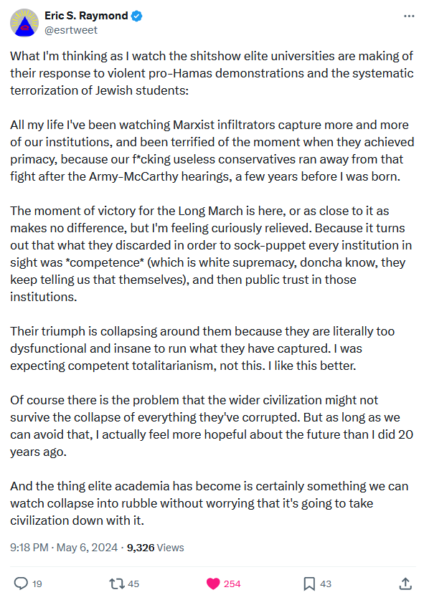Our Own Devices
Published Feb 7, 2024Widely used throughout the 20th Century by schools, churches, fan clubs, and other small organizations, Spirit Duplicators or “Ditto” machines allowed small runs of documents to be copied cheaply and quickly. Often conflated with mimeographs, they were in fact a distinct technology, used a master sheet printed with dye-bearing wax instead of liquid ink. Paper passing through the machine was wetted with a solvent and pressed against the master sheet, causing some of the dyed wax to dissolve and transfer onto the paper.
0:00 Introduction
1:26 “Ditto” and “Banda” as Genericized Trademarks
2:15 Rex Rotary R11 – History
2:56 Rex Rotary R11 – External Controls
3:17 Creating Master Sheets
4:44 Correcting Master Sheets
5:21 Loading the Master Sheet
6:00 Solvent (“Duplicator Fluid”) System
7:35 Loading Paper/Final Setup
8:31 Making Copies
9:05 Other Design Features / Internal Mechanism
9:52 Design Variations
10:12 Master Sheet Variations
11:00 Impact of Spirit Duplicators
11:23 Outro
(more…)
May 14, 2024
Spirit Duplicators: Copies Never Smelled So Good
May 13, 2024
QotD: Of course, they could try just … acting
In any case, the demand that actors should play only those parts that are somehow consonant with what we now call their “lived experience” is self-evidently absurd. If taken seriously, Richard III would have to be played by a member of the Royal Family (Prince Andrew, perhaps?), for only such a person could know or imagine what it was like to be a royal person and covet the crown. Taken to its logical conclusion, or its reductio ad absurdum, the argument would mean that the only person an actor could play was him- or herself.
Of course, a happy medium exists, though we are increasingly unable to find it. We should not expect Ophelia to be played by a 90-year-old crone. We should add difficulties in the way of an audience’s “willing suspension of disbelief”, as Coleridge put it, by casting a tall man as short or a short man as tall.
The whole silly controversy reveals to what absurdities we have sunk, thanks to identity politics and a willful misunderstanding, for the sake of personal or group advantage, of what wrongful discrimination is. Storms in teacups can be revealing.
Theodore Dalrymple, “My Kingdom for Some Crutches”, New English Review, 2024-02-06.
May 12, 2024
Javier Milei and the “Malvinas” question
Colby Cosh on how Argentine President Javier Milei handled British press inquiries about the Malvinas Falkland Islands like a boss:
I’ve been relishing a classic feast of British press overreaction to a BBC interview with the colourful libertarian president of Argentina, Javier Milei. The Beeb’s Ione Wells visited Milei at the Casa Rosada last week in Buenos Aires for a chat, and nothing like this could possibly happen without some talk about those damned islands — the Falklands or las Malvinas, depending on which country you believe to be their rightful sovereign.
Argentine leaders have to be careful how they talk about the Falklands (and about their uninhabited dependencies elsewhere in the South Atlantic). For decades regimes of left and right in Argentina have opportunistically kept the disputed islands at the forefront of the public imagination, fostering a spirit of delayed revenge. Sometimes this leads to daft verbal outbursts about “colonialism”, alongside game-playing with supplies and access to the islands. The constitution of Argentina contains language asserting “legitimate and imprescriptible sovereignty” over the rocks.
So anything a current Argentine leader says about the Falklands is bound to be scrutinized closely at home and in the United Kingdom. Milei is naturally impulsive, and has the particular problem that he is a political admirer of the late Margaret Thatcher. Wells tried to provoke him by bringing up the 1982 sinking of the General Belgrano and the consequent deaths of 323 Argentine sailors, which is still a slightly controversial episode of the Falklands War among the most self-hating shades of U.K. political opinion.
Milei, who had arranged a little display of Thatcher memorabilia in the room where the interview was held, sliced right through Wells’s Gordian knot. “Criticizing someone because of their nationality or race is very intellectually precarious,” he told Wells. “I have heard lots of speeches by Margaret Thatcher. She was brilliant. So what’s the problem?”
Even if you venerate Thatcher, who ordered the sinking of the Belgrano in very cold blood, you can perceive that this is a non sequitur. Milei is under no obligation to like a fellow neoliberal who was a military enemy of his own country. But one does remember that British statesmen have often been willing to express admiration for Napoleon I, Washington, Rommel and other killers of large numbers of British soldiers.
May 11, 2024
The second time as farce – “we’re living through a performative version of the seventies”
Sarah Hoyt posted this a few days back, but I only noticed it now:

A member of the CIA helps evacuees up a ladder onto an Air America helicopter on the roof of 22 Gia Long Street April 29, 1975, shortly before Saigon fell to advancing North Vietnamese troops.
Hubert van Es photo via Wikimedia Commons.
Yesterday talking to a friend, he said that it seems like we’re living through a shoddy version of the seventies.
But that’s not QUITE it. It’s more complicated. It’s more like we’re living through a performative version of the seventies.
It’s like all the recasting and re-doing of classic movies and series, at this point even those that weren’t particularly successful: it feels like Hollywood is just redoing these things out of some sort of dinosaur brain memory that they were successful. However, the people in charge no longer have any idea why these things were successful or why they resonated or achieved the results they did.
So the re-casts/re-dos sound hollow and strange, and would even if they didn’t use them to push their weird personal current obsessions. (All heroes must be women and black and increasingly of some odd sexual identity! Only villains can be white!) Because the car is there, but the engine is gone metaphorically speaking.
A Boeing CH-47 Chinook transport helicopter appears over the U.S. embassy compound in Kabul, 15 Aug 2021. Image from Twitter via libertyunyielding.com
All these redos and recastings and all are just shells of what the original was. And imbuing them with current wokeness doesn’t make them massively popular, because it doesn’t have that kind of purchase amid the public.
The left and current “Cultural gatekeeping elite” doesn’t seem to be aware of this, or aware of why they fail. In fact, each failure baffles them.
I could be snide, here, and say that it’s because this entire administration, and in fact, the entire upper-crust/controlling layer of our institutions are profoundly untalented theater kiddies, who have no creativity but love the style, and so are trying to do performance of what they think should be there, in the hopes it will work. And are forever baffled it doesn’t.
The truth is not quite that mean, but it rhymes. They are people of a certain frame of mind. In most places and most times, this would make them profoundly “conservative.” Frankly they are, because 100 years into the “progressive” project, those who support it are conservatives. But it’s a weird sort of “conservatism” because what they’re conserving is the cult that tells them if they tear Western civ apart paradise ensues. The whole just-so cult of Marx as filtered through their parents, grandparents and great grandparents.
Part of the whole Marxian philosophy is that it’s a self-contained system, congruent within itself, and with no basis in reality. This makes a certain type of mind susceptible to it. In other centuries they’d be religious fanatics, missionaries to the heathens and zeal-burned puritans.
That type of mind tends to think of things in terms of pre-ordained and fixed narrative, not wildly creative and innovative. That THEY think of themselves as creatives is the insanity of the current system and the Marxian corruption of institutions. They are not actually capable of creativity, only of passing on the received word.
And so we get to the other side of the rerun of the seventies: These kids, by and large, grew up with everything from schools, to TV to even their parents (for the children and grandchildren of boomers) being sold a version of the sixties and seventies in which protesting on the street, behaving badly and destroying property was being passionate and fighting for the voiceless and by itself meant IMPROVING SOCIETY and MAKING THE WORLD A BETTER PLACE.
So the most gullible of this generation are rebels without a clue. They must perform the hit the streets and protest, but they lack the immediacy of the draft to make it personal, and they lack anything like civil rights to make it righteous.
Instead they attach to any stupid cause they can find or which is handed to them by manipulative SOBs. So, you know, it might be saving the endangered Prebles Jumping Mouse, or perhaps saving old buildings, or even well … Lately Occupy Wall Street, BLM, antifidiots and of course pro-Hamass.
Apple crushes it
You might not believe me, but I haven’t seen the Apple ad that everyone is hating on. I actively avoid ads of all kinds and refuse to open websites that are little more than shills for whoever is paying for the advertising. That aside, the description of the current ad — that Apple has already apologized for, I’m told — would certainly make me less likely to deal with the company that produced it:
Not since Kendall Jenner slipped away from a modeling shoot to defuse the tensions around a Black Lives Matter protest by handing a can of Pepsi to a riot cop has a mainstream ad campaign generated as much hostility as the just-released spot from Apple pitching the arrival of the thinnest iPad ever.
The ad was shared on Twitter by Apple CEO Tim Cook, who implored potential customers to “Just imagine all the things it’ll be used to create.” The clip shows a huge hydraulic press slowly crushing a bunch of old analog-era creative tools and treats, including a trumpet, an acoustic guitar and a piano, a record player, a camera, an old stand up arcade game, some rubber squeeze toys, and a bunch of paint cans. Then it pulls up to reveal the new, ultra thin iPad Pro, which has assimilated all of these things like some flatland Borg.
You can see what Apple was going for here – all these old, bulky, single purpose tools and playthings are now available at your fingertips, in a package no bigger than a magazine. It’s an upgraded version of that old meme that used to go around about everything that used to be literally on your desktop – phone, typewriter, file folders, fax machine, and so on – is now digitally sitting there on your computer desktop.
People got it all right. The response to the spot was immediate, visceral, and vicious. They hate it.
How did Apple go so wrong?
The most salient feature of the western mind’s relationship with technology is the ambivalence we have felt ever since Prometheus stole fire from the gods. On the one hand, we can now cook our food and keep ourselves warm. On the other hand, who knows where this will lead? Have we unleashed forces that will lead us to our destruction, or at least, lead us away from our true, authentic, selves? We love technology but we fear it, and the pendulum tends to swing from one extreme to the other depending on a host of factors, the most important of which is probably the rate of change and innovation. The faster things move, the less time we have to adapt, and we fear what is being lost more than we appreciate what is being gained.
We are living through a period of what is for most of us unprecedented technological change, where the threats – to both humanity, and to our humanity – seem more urgent than they have in decades, certainly since the advent of the nuclear bomb. Whether it is the sudden fears over AI or the rising moral panic over smartphones or the leery way we look at self-driving cars, there is a firm sense that things are just happening too fast, that the old is being replaced by the new in ways we are barely able to process, let alone control.
Update, 17 May: Samsung picks up something from the wreckage:
The publicity error was compounded by a frenzy of critical mainstream media coverage accompanied by celebrities expressing their outrage at the ad. But Samsung was not ready to let it lie.
The South Korean consumer technology mega-corp posted a short video on Twitter — which now calls itself X — accompanied by the hashtag “UnCrush”.
It shows a young woman walking into what appears to be the wreckage left behind by the Apple ad. Picking up a badly damaged guitar, with strings missing and holes in the body’s soundboard, she nonetheless sits down to play, reading music from a Samsung tablet.
“We would never crush creativity,” Samsung says in the social media post.
It might be a cheap shot, but it is one that is bound to sting for Apple.
Rex Murphy, RIP
Canadian political commentator Rex Murphy has died at 77:
Tributes and remembrances from across the political spectrum have poured in for Rex Murphy, who died aged 77.
Mark Critch, a fellow Newfoundlander who parodied Murphy on the CBC program This Hour Has 22 Minutes, recalled that Murphy had worked with his father at VOCM radio in St. John’s, N.L. “You might not always agree with what he had to say but oh, could he say it”, Critch wrote on X, formerly Twitter. “I hope he makes it home to Gooseberry Cove.”
That theme — of not always agreeing with Murphy, but admiring his style — has been frequent in remembrances of his life.
Bob Rae, a long-time Liberal member of Parliament, former premier of Ontario and now Canada’s ambassador to the United Nations, wrote of meeting Murphy on television in 1978: “He stole the show”.
“We disagreed about many things, but I never lost my affection and admiration for him,” Rae wrote on X.
In a video posted Thursday evening, which had been recorded for an award Murphy received prior to his death, Conservative Leader Pierre Poilievre praised Murphy’s “verbal ninja moves”.
“You are a national treasure. You are a voice of reason. You are a champion of all things that are great in our country,” Poilievre said.
Canada has lost an icon, a pioneer of independent, eloquent, and fearless thought, and always a captivating orator who never lost his touch.I was honoured to toast to Rex a few months ago on receiving the Game Changers Award for one of this country’s true game changers.
Rex,… pic.twitter.com/Nz8fWBPv7F
— Pierre Poilievre (@PierrePoilievre) May 10, 2024
On Friday, the House of Commons held a moment of silence in honour of Murphy.
“Few gifts from the rock rival that of the now-departed Rex Murphy,” Conservative MP John Williamson said in the House. “Rex stood on guard for all of us with great wit and wisdom throughout his many newspaper columns and on-air commentaries. Rex was brave but without pretence. He despised the smug.”
Murphy’s writing, which appeared for more than a decade in National Post, was always fierce, often controversial, and liberally peppered with the sort of language that has the feel of an age gone by.
May 10, 2024
QotD: The artificially induced public interest in women’s football
Sometimes I think (or is it feel?) that we are living in a propaganda state, not like that of North Korea, of course, in which the source of a univocal doctrine is clear and unmistakable, but one in which we are constantly under bombardment by an opinion-forming class that wants to make us believe, or be enthusiastic about, something to which we were previously indifferent or even hostile. There is no identifiable single source of the propaganda, and yet there seems also to be coordination: for how else to explain its sudden ubiquity? It is more Kafka than Orwell.
For example, quite recently there has been a concerted attempt to persuade the European public that women’s football (soccer) is interesting and exciting. The newspapers and online publications suddenly carry stories about it, with pictures, reports, profiles, and the like, whereas, shortly before, most people were only vaguely aware that women even played football.
No one can object to their doing so, of course, but the fact remains that they are not very good at it, at least not by comparison with men. They may be good — but with for women always appended. It is not the fault of women that they are not very good at football, any more than it is the fault of fish that they are illiterate, but the fact that everyone pretends not to notice it and dares not say it, at least in public, is surely a little sinister. A man of seventy may still play a good game of tennis, but it is always for his age: one wouldn’t expect him to win Wimbledon, nor would one expect excited, breathless reports on an over-seventies’ tennis tournament. The sudden interest in women’s football thus has a bogus feel about it, like the simulated enthusiasm of a crowd for the dictator in a communist state.
Theodore Dalrymple, “Propaganda & uglification”, New English Review, 2023-12-21.
May 9, 2024
“[B]ad music does seem to disappear – you just need to wait 70 or 80 years, more or less”
I’m far from a modern music fan, so I find Ted Gioia’s analysis of the genre to be hopeful for the future … there’s so much objectively bad music being released these days, but the vast majority of it will sink without a trace:
“No stupid literature, art or music lasts.”
That’s a quote from literary critic George Steiner (1929-2020) — in his highly recommended book Real Presences from 1986.
I was shocked when I read that sentence. But pleasantly shocked.
Could it really be true that all the sonic detritus circulating in our culture will just magically disappear? It seems too good to be true.
And Steiner wrote that before the rise of the Internet and AI. If he thought we were drowning in crappy art back in the 1980s, what would he think now?
Around 100,000 songs are uploaded online every day. I can’t listen to more than a fraction of them, but almost every day I check out random new tracks on Bandcamp — and sometimes the process is painful.
Nobody can say that I’ve shirked my responsibilities as a music critic. In recent months, I’ve listened to death metal bands from Croatia who sounded like they were ready to bludgeon the entire population of Zagreb; incoherent Christian drone pop that only delivers the Good News when it’s finally over; entire albums of static, buzzes, burps, or toots; people singing to backup tracks, but apparently unaware that they are in different keys; and various home recordings that should never have left the basement.
It’s an ugly job, but somebody has to do it. I occasionally find that rare gem, a self-produced needle of rare pointedness in the otherwise dismal haystack. That makes it all worthwhile.
But Steiner may be on to something. Most of the bad stuff disappears without anyone worrying about it. In fact, it disappears for that very reason — because nobody worries about it.
And the deeper I peer into the past, the more I see the same Darwinian trend. He called it survival of the fittest.
My considered judgment is that almost every musical work from the 17th and 18th centuries that survives in the standard repertoire possesses some merit. An interesting case is Bach, who is the presiding genius among the known composers from that era. Bach was unfairly forgotten in the years following his death — in fact, his sons got more acclaim than their dad.
Bach had been dead for more than 75 years before his reputation started rising again. The neglect was unfair, almost horrendously so. But with the passage of time, he gained preeminence, almost as if an invisible hand — much like those the economists describe — was setting things right. You could tell similar stories about other composers, from Antonio Vivaldi to Scott Joplin. It’s almost magical the way things work.
I must say that this is a judgment that takes a long time to make. Back at age twenty, I couldn’t have told you if Bach wrote better fugues than other composers, or Joplin composed better rags. Yet after decades seeking lost masterpieces from the past, and picking through the works of secondary and tertiary figures, I’ve concluded that the legendary figures from the past definitely earned their preeminence.
As a result, I worry more about the artists whose work has disappeared completely. Those are wrongs that can’t be rectified.
May 8, 2024
ESR on the shambolic response of the “elite” universities to the protests
ESR finds a silver lining to the storm clouds of all the ongoing pro-terrorist campus protests we’re seeing these days:
What I’m thinking as I watch the shitshow elite universities are making of their response to violent pro-Hamas demonstrations and the systematic terrorization of Jewish students:
All my life I’ve been watching Marxist infiltrators capture more and more of our institutions, and been terrified of the moment when they achieved primacy, because our f*cking useless conservatives ran away from that fight after the Army-McCarthy hearings, a few years before I was born.
The moment of victory for the Long March is here, or as close to it as makes no difference, but I’m feeling curiously relieved. Because it turns out that what they discarded in order to sock-puppet every institution in sight was *competence* (which is white supremacy, doncha know, they keep telling us that themselves), and then public trust in those institutions.
Their triumph is collapsing around them because they are literally too dysfunctional and insane to run what they have captured. I was expecting competent totalitarianism, not this. I like this better.
Of course there is the problem that the wider civilization might not survive the collapse of everything they’ve corrupted. But as long as we can avoid that, I actually feel more hopeful about the future than I did 20 years ago.
And the thing elite academia has become is certainly something we can watch collapse into rubble without worrying that it’s going to take civilization down with it.
May 7, 2024
But Carbon Dioxide is scary, m’kay?
Last week, Chris Morrison shared some charts that show atmospheric carbon dioxide to be nowhere near high enough to be a concern … in fact, compared to ancient atmospheric conditions, CO2 may be at a potentially concerning low point:
Last year, Chris Packham hosted a five-part series on the BBC called Earth, which compared a mass extinction event 252 million years ago to the small rise in atmospheric carbon dioxide seen in the last 150 years. He said he hoped the “terror factor” generated by his programme would “spur us to do something about the environment crisis”. But as we shall see, the only terror factor is having to sit through an hour-long film consisting of cherry-picked science data and unproven assertions in the hope of persuading us that the increase in global temperatures in the last 150 years or so is comparable to the rise in temperatures over a considerable swath of geological time. Great play was made of a 12°C rise in average global temperatures 252 million years ago as CO2 levels started to rise, although Packham fails to report that CO2 levels were already at least four times higher back then than in modern times. The “science” that Packham cloaks himself with on every occasion is hardly served by terrorising the viewer with what is little more than a highly personal political message.
Think of all that suffering and wastage, he says about the fourth great mass extinction. I don’t think we want a comparable extinction to the one that happened 252 million years ago on our conscience, he adds. Of course, Packham is not the first person to politicise the end-Permian extinction when most plant and animal life disappeared to be replaced eventually with what became known as the age of the dinosaurs. As we can see from the graph below, even though that extinction event coincided with an uptick in CO2 levels, the general trend over a 600-million-year period was downwards ending in the near denudation currently experienced today. But scientists note that the rise started some time before the extinction event, with most of the Permian characterised by very low levels of CO2.
It is obvious why the three other great extinctions are of little interest to modern day climate alarmists. The Ordovician extinction 445 million years ago occurred when CO2 levels were 12 times higher than today, the Devonian wipe-out happen 372 millions ago when CO2 levels were falling, while the later Triassic/Jurassic event 201 million years ago occurred at a time of stable CO2. Hard to see a pattern there suggesting rising CO2 levels equals a mass extinction event. The disappearance of the dinosaurs 66 million years ago is generally attributed to the impact of a giant meteorite, while the current sixth mass extinction exists only inside the head of the Swedish doom goblin, and need not detain us at this point.
Since Packham was essentially making a BBC political film promoting Net Zero, he inevitably started with the fixed view that all our current environmental problems are the fault of CO2. An intense period of volcanic eruptions that led to huge coal deposits catching fire increased CO2 levels and almost instantly sent temperatures soaring at the end of the Permian period. About 20 million years of rain subsequently followed, he observed, taking some of the CO2 out of the atmosphere and order it seems was restored. Certainly, CO2 resumed a small descent but levels remained almost as high, or for some periods higher, as those at the end of the Permian period for another 120 million years. Packham does not provide an explanation of what happened to the average global temperature at this time.
The graph above shows why he avoided the subject. Temperatures did rise at the end of the Permian period after a long decline, but only as far as previous highs recorded 200 million years earlier. They then stayed at those levels for most of the next 200 million years, throughout the age of the dinosaurs. Helped by the increased levels of CO2, this is considered one of the most verdant periods in Earth’s history.
May 6, 2024
The Canadian Army defiles updates its online branding
Shady Maples isn’t too impressed with the new corporate image “icon” the Canadian Army extruded onto their TwitX account last week:

The Canadian Army’s dysenteric moose shitting itself to death, er, I mean “The Canadian Army’s latest supplementary icon for online use”
The Canadian Army needs to get its shit together on Twitter, not because Twitter is important, but because people believe that Twitter is important. If you follow official accounts, then you’re probably tracking the Army’s latest update to its corporate branding.
Within hours the Army was
furiously backpedalingclarifying that our new digitalized Rorschach test wasn’t a replacement logo, but an “icon” that “will be used in the bottom left corner of certain communications products and in animations for videos”. This was a bigger news event than the announcement itself.When I first saw this thing, I thought it was a maple leaf blowing past north Africa. Could this be Straussian commentary on our National Defence Strategy? Perhaps, but now thanks to Twitter all I see when I look at it is a dysenteric moose shitting itself to death (and now you do too).
The hook in all this isn’t the new branding, which is just a drop in CAF’s vast ocean of PowerPoint phluff, the visual equivalent of white noise. It’s also not in the backlash either, because that’s just another Tuesday on Twitter. You see, unlike the Iranian nuclear program or whatever’s happening between Drake and Kendrick Lamar, the CAF is not a topic of serious international concern.
Come for the mocking of the icon, stay for the contrasting social media appearances of Canadian and Israeli Lieutenants General.
May 5, 2024
The protests “will help Trump get an Electoral College landslide, just as the new left handily elected Nixon in 1968 and 1972”
Andrew Sullivan, the very model of a never-Trumper, sees the ongoing student protests feeding into a repeat of the 1968 and 1972 US Presidential elections:

“Patriotic students hung up an American Flag at George Washington University after pro-Palestine protesters trashed the campus, defaced the statue of George Washington, and removed an American Flag.”
Twitter image posted by Chaya Raichik – https://twitter.com/ChayaRaichik10/status/1786504098746958103/photo/1
As readers know, I’m deeply sympathetic to the argument that Israel has over-reached, over-bombed, and over-reacted in its near-unhinged overkill of Palestinian civilians, especially children, in the wake of 10/7’s horrors. It has been truly horrifying. I begrudge no one demonstrating passionately to protest this. But as I watch the rhetoric and tactics of many — but not all — of these students, I’m struck by how this humane concern is less prominent than the rank illiberalism and ideological extremism among many.
Preventing students from attending classes, taking exams, or even walking around their own campus freely is not a protest; it’s a crime. So is the destruction of property, and the use of physical intimidation and violence against dissenting students. The use of masks to conceal identity is reminiscent of the Klan, and antithetical to non-violent civil disobedience. It’s a way for outsiders to easily infiltrate and a way to escape responsibility for thuggishness. It’s menacing, ugly and cowardly.
It did not have to be this way. Imagine if students simply demonstrated peacefully for a cease-fire, placed the victims and hostages at the forefront of the narrative, and allowed themselves to be arrested proudly on camera and face legal consequences for their actions, as the civil rights movement did. Imagine if they were emphatically non-violent and always open to debate.
But they aren’t, because they are not the inheritors of the Christian, universalist civil rights movement but its illiberal, blood-and-soil nemesis, long curated in the Ivy League. The key group behind the protests, Students For Justice in Palestine, doesn’t mince words. It celebrated the explicitly genocidal murder of Jews on October 7:
National liberation is near — glory to our resistance, to our martyrs, and to our steadfast people! … Resistance comes in all forms — armed struggle, general strikes, and popular demonstrations. All of it is legitimate, and all of it is necessary.
The “our” is interesting. If you think these protests are only about Gaza — and not America — you’re missing the deeper context. Here’s a masked, keffiyeh-wearing spokeswoman for the UCLA protest:
Given the fact that the University of California is founded on colonialism, it’s inherently a violent institution. There needs to be an addressment of US imperialism and its ties to the UC system and how it perpetuates war and violence aboard — not only abroad, but also here, locally.
So violence is justified in response. Here’s a keffiyeh-clad spokesman at CUNY:
This revolution, which includes the mass demonstrations and encampments, are not just exclusively for students. It is for the masses. … It is for the free people of the world who are able to resist however you can — whether it be with a rock and other tools of liberation.
These are not fringe figures; they have been chosen to speak to the public. They believe in violence because there is nothing in their worldview that could prohibit it against certain “oppressor” races of people. As one of the “queer” leaders of the Columbia protest has said: “Zionists don’t deserve to live”, and “Be grateful that I’m not just going out and murdering Zionists”. He took his classes in decolonization seriously, even if he is now backtracking from their logical conclusion.
The illiberalism is deep and endemic. The civil rights movement was desperate for the press to show up; these thugs follow observers menacingly around, holding up barriers to prevent even fellow students from filming them. The civil rights movement ended physical borders between groups of human beings; these thugs create borders and police dissent. The civil rights movement asked America to live up to its ideals; the woke believe America is a source of evil in the world, and needs to be “decolonized”. “I love Osama [bin Laden]”, one pro-Palestinian demonstrator in New York City said. “I want to suck his dick”. That mix of evil and scatology is a woke trademark.
And these protests are clearly as much about the abolition of the Jewish state as they are the horror of Gaza. They are driven by the neoracist idea that “white-people-are-bad-but-black-and-brown-people-are-good”; they are about a blood-and-soil “anti-imperialism” that requires the abolition of any state not reflective of ancient indigenous populations. (The SJP refers to the US as “Turtle Island”, an allegedly indigenous name.) They are against “cultural appropriation” but prance around in keffiyehs. They glibly use the word “genocide” to trigger and re-traumatize Jews, while ignoring the genocidal goals of Hamas; and chants of “There Is Only One Solution: Intifada Revolution!” ring with echoes of Nazism.
And they will help Trump get an Electoral College landslide, just as the new left handily elected Nixon in 1968 and 1972.
It tells you something when even Al Sharpton is rattled by these violent fanatics. “How do the Democrats — how do all of us on that side — say January 6th was wrong if you can have the same pictures going on on college campuses?” he asked on MSNBC. It feels like 2020 again. Replacing Old Glory with the Palestinian flag or defacing a statue of George Washington (see above), is not how you win over the country. But the more you know about these fanatics the more you realize they don’t want to win over the country; they want to destroy it as mindlessly as the pro-Trump fringe. And they’d welcome the even deeper polarization he’d bring.
Trudeau’s shameful role in promoting “the blood libel against Canada”
Conrad Black believes that Justin Trudeau owes Canadians an apology for his role in pushing the most extreme version of the Residential Schools propaganda:
A very well-informed friend of many years, a contemporary of mine, wrote me the other day that “The blood libel against Canada of this monstrous fiction of thousands of secretly buried Indigenous victims of residential schools may be the single worst injustice this country has suffered in our lifetimes. It is now a conspiracy of silence involving both federal and provincial governments, the RCMP (shameless and useless as ever), and the media, and ‘let’s be frank’, (quoting a Soviet diplomat many years ago whom we both always found rather entertaining in the utter nonsense he used to recite at international meetings), a large section of the public, which knows this to be a falsehood but chooses to side with the silent forces”.
Almost all readers will be aware of the tidal wave of self-mutilating hysteria that inundated this country when, on the basis of apparent anomalies detected by underground radar close to a former Indian Residential School site at Kamloops, British Columbia, a couple of years ago. Immediately, the theory took hold that thousands of native children in those schools had died because of negligence or outright homicide, were buried secretly in unmarked graves, their deaths never recorded and no account given to their families. There is no evidence to support this, yet the prime minister led the nation in an almost medieval circular mass pilgrimage of self-flagellation. In order to impress upon ourselves and the entire world the profundity of our self-humiliation, all official Canadian flags everywhere were lowered to half-mast and maintained in that condition for an unheard-of period of six months.
Parliament voted to spend $27 million to conduct the excavations necessary to verify or otherwise the existence and extent of these graves. This work could have been accomplished by a small group for a few thousand dollars, but the suggestion of actually establishing what happened set up the customary cacophony of complaints about the sacred untouchability of burial grounds, even though it was not clear that there was burial ground at the Kamloops site, and if it was it was rank speculation about who might be buried there if it was. It is not conceivable to me that the country could dress itself out in sackcloth and ashes and flay the flesh off its own back before the bemused or astonished eyes of the entire world and then produce no evidence whatever of the unspeakable outrages that allegedly occurred and gave rise to this conduct, and then simply lapse into Sphinx-like incommunicability: a pristine silence of perfect ambiguity followed a near-terminal St. Vitus dance of window-rattling ululations of national guilt, shame, and self-hate.
Kamloops Indian Residential School, 1930.
Photo from Archives Deschâtelets-NDC, Richelieu via Wikimedia Commons.Various parts of this macabre fable have been precisely and publicly put to rest: children in residential schools were not buried secretly and records were not destroyed; residential school students were accounted for and if they died while at the schools the reason was typically provided and it was almost invariably as a result of illnesses that were not as well treated in those times, and particularly tuberculosis. Beyond that, there has been silence: the febrile allegations of hideous wrongdoing vituperatively hurled at Canadian history and society – at the ancestors of English and French Canadians, at the main Christian churches, at the principal founder of our country whose distinguished name (John A. Macdonald) has been taken down from public buildings, statues of him overturned or removed, and effigies of him burned at festivities of confected righteous anger from coast to coast; all just mysteriously stopped. It is a sonic version of the celebrated poem by Shelley about the fallen monument of a once great King: “Round the decay of that colossal wreck, boundless and bare, the loan and level sands stretch far away.”
QotD: The aims of the intersectional left
Every now and again, it’s worth thinking about what the intersectional left’s ultimate endgame really is — and here it strikes me as both useful and fair to extrapolate from Kendi’s project. They seem not to genuinely believe in liberalism, liberal democracy, or persuasion. They have no clear foundational devotion to individual rights or freedom of speech. Rather, the ultimate aim seems to be running the entire country by fiat to purge it of racism (and every other intersectional “-ism” and “-phobia”, while they’re at it). And they demand “disciplinary tools” by unelected bodies to enforce “a radical reorientation of our consciousness”. There is a word for this kind of politics and this kind of theory when it is fully and completely realized, and it is totalitarian.
Andrew Sullivan, “A Glimpse at the Intersectional Left’s Political Endgame”, New York Magazine, 2019-11-15.
May 4, 2024
Shakespeare Summarized: Antony and Cleopatra
Overly Sarcastic Productions
Published Dec 2, 2016Hey, remember almost exactly three years ago when I summarized Julius Caesar? Published on December 1st, even? A coincidence I totally planned when I spontaneously decided to do this video today?














